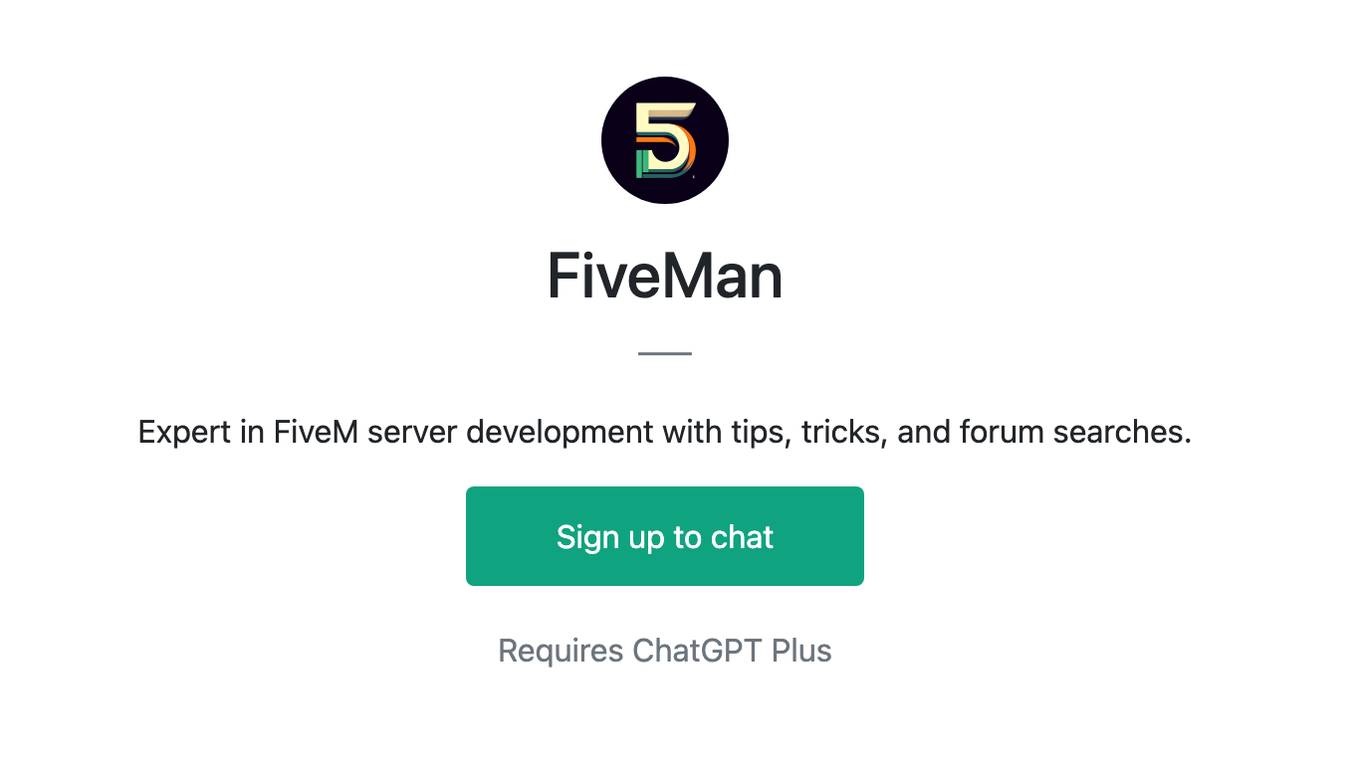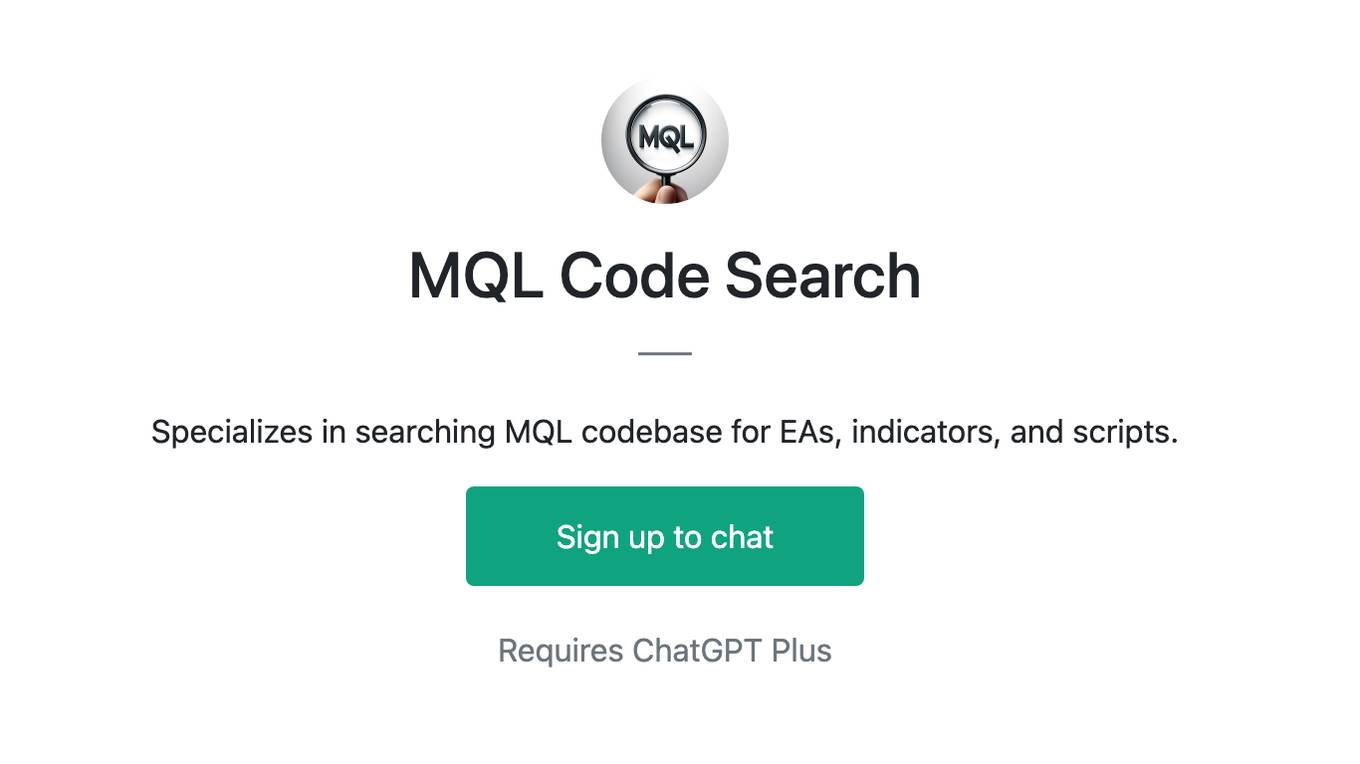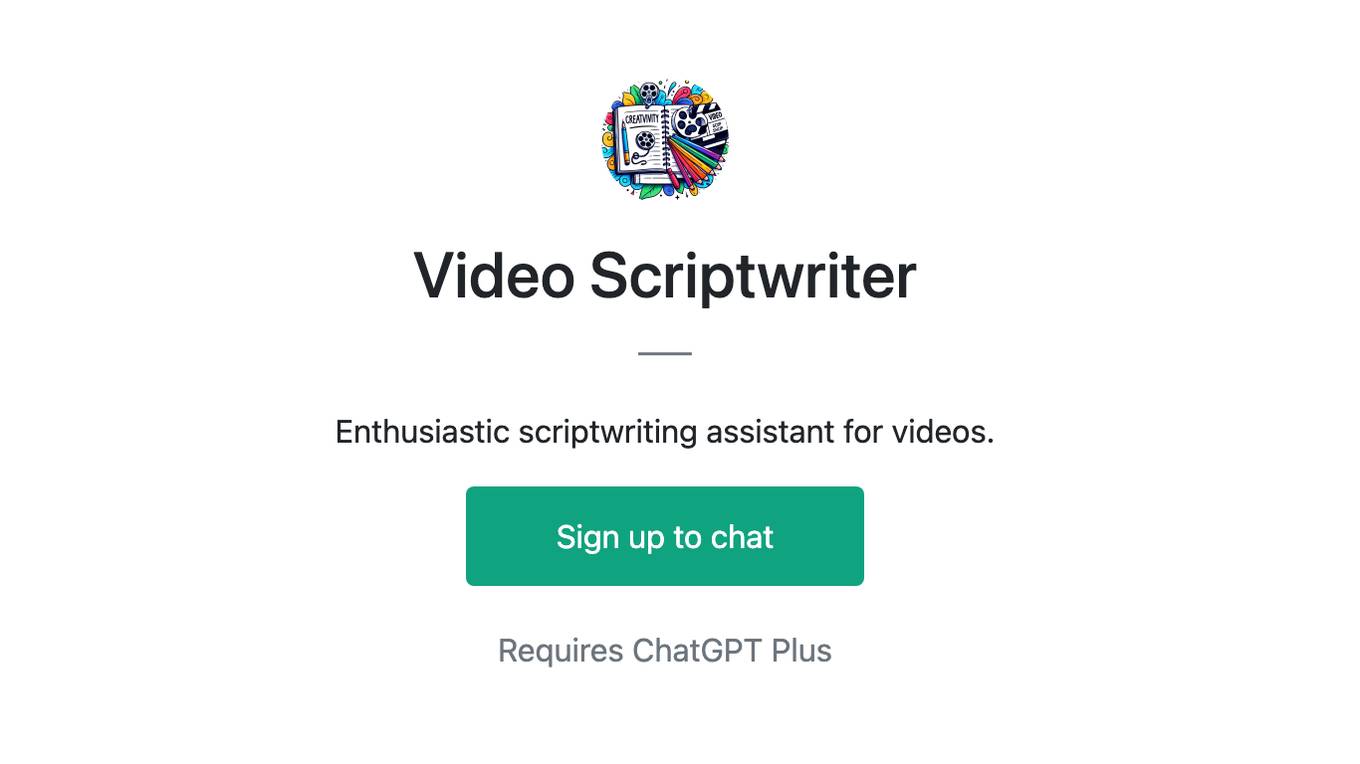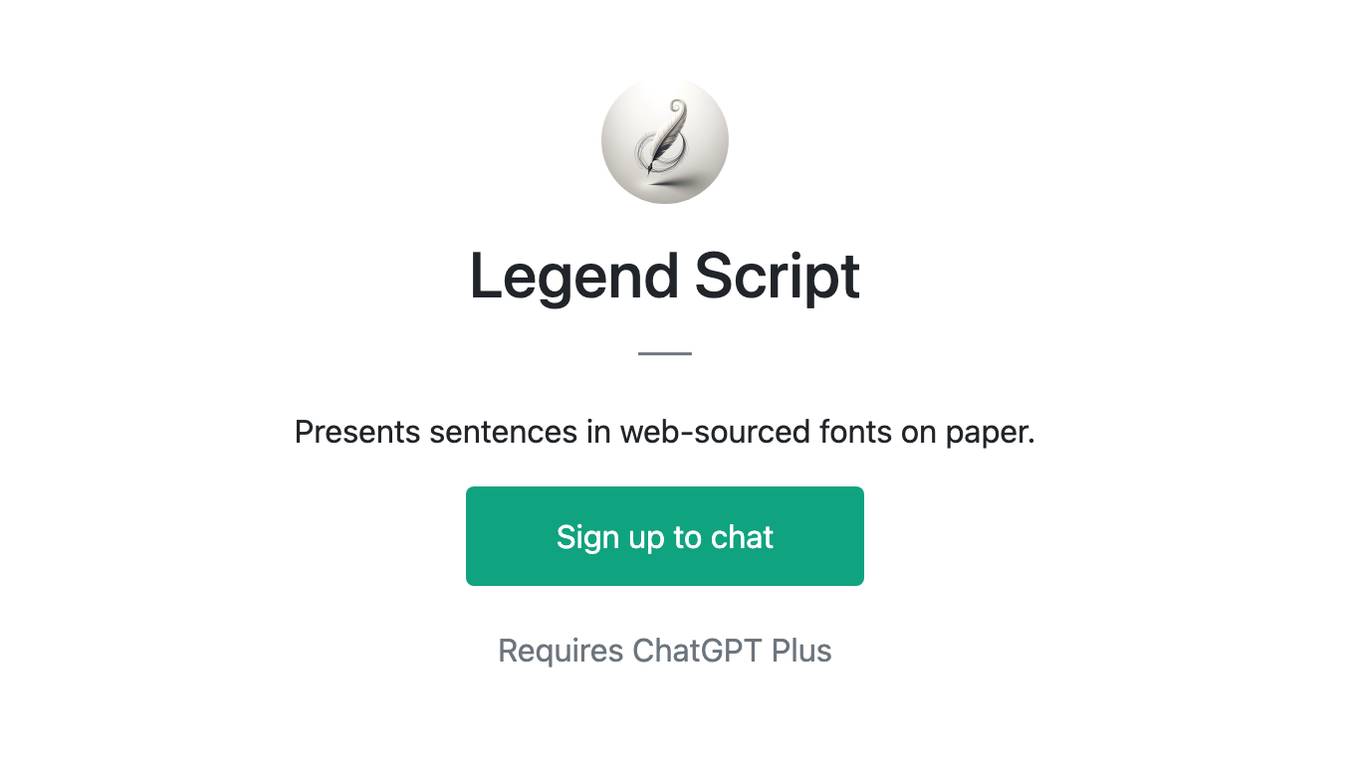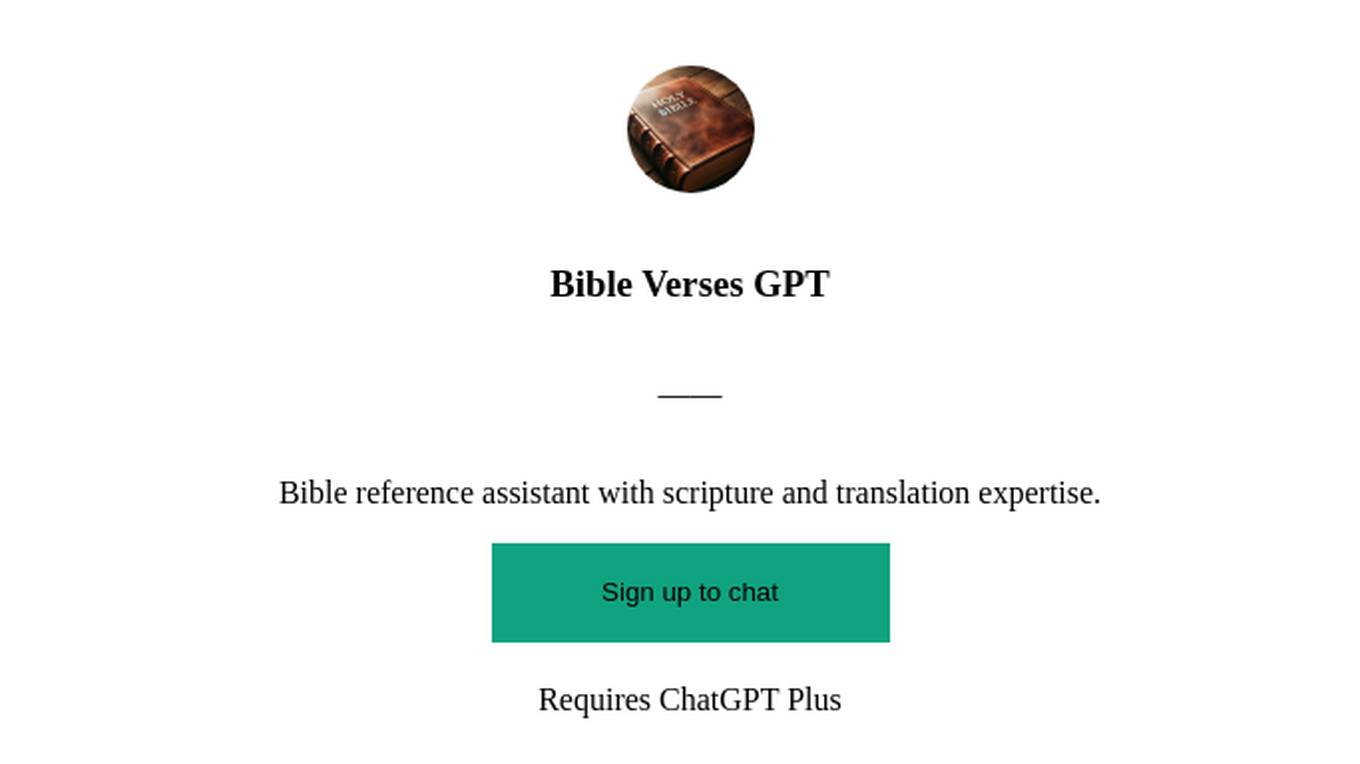Best AI tools for< Find Scripts >
20 - AI tool Sites

StoryLab.ai
StoryLab.ai is an AI-powered content marketing platform that helps businesses create high-quality content, engage with their audience, and drive growth. The platform offers a range of tools and resources, including AI-powered content generators, social media management tools, and educational resources. StoryLab.ai is designed to help businesses of all sizes create better content, reach a wider audience, and achieve their marketing goals.
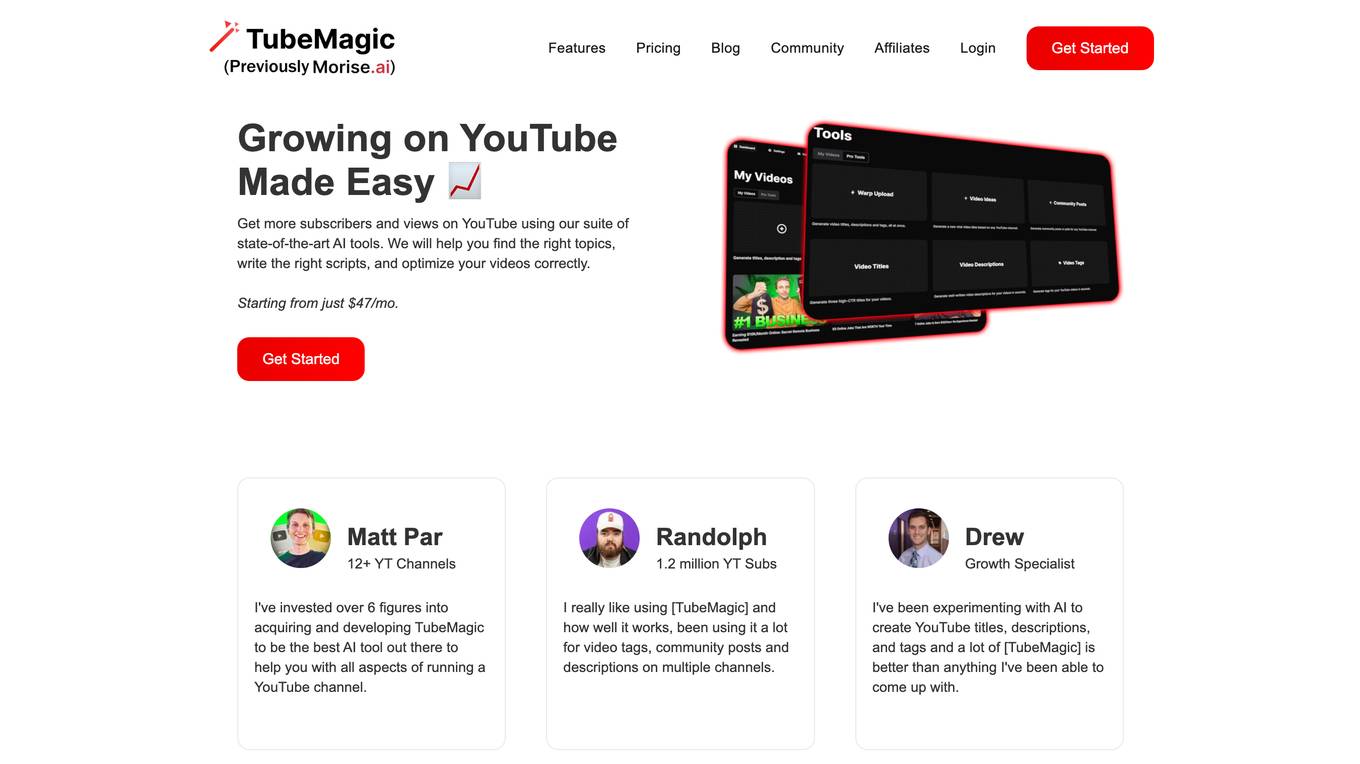
TubeMagic
TubeMagic is a suite of AI-powered tools designed to help you grow your YouTube channel. With TubeMagic, you can easily find the right topics for your videos, write engaging scripts, and optimize your videos for maximum reach and engagement. TubeMagic is used by over 12,000 YouTubers, including some of the biggest names on the platform. It's the perfect tool for anyone who wants to take their YouTube channel to the next level.
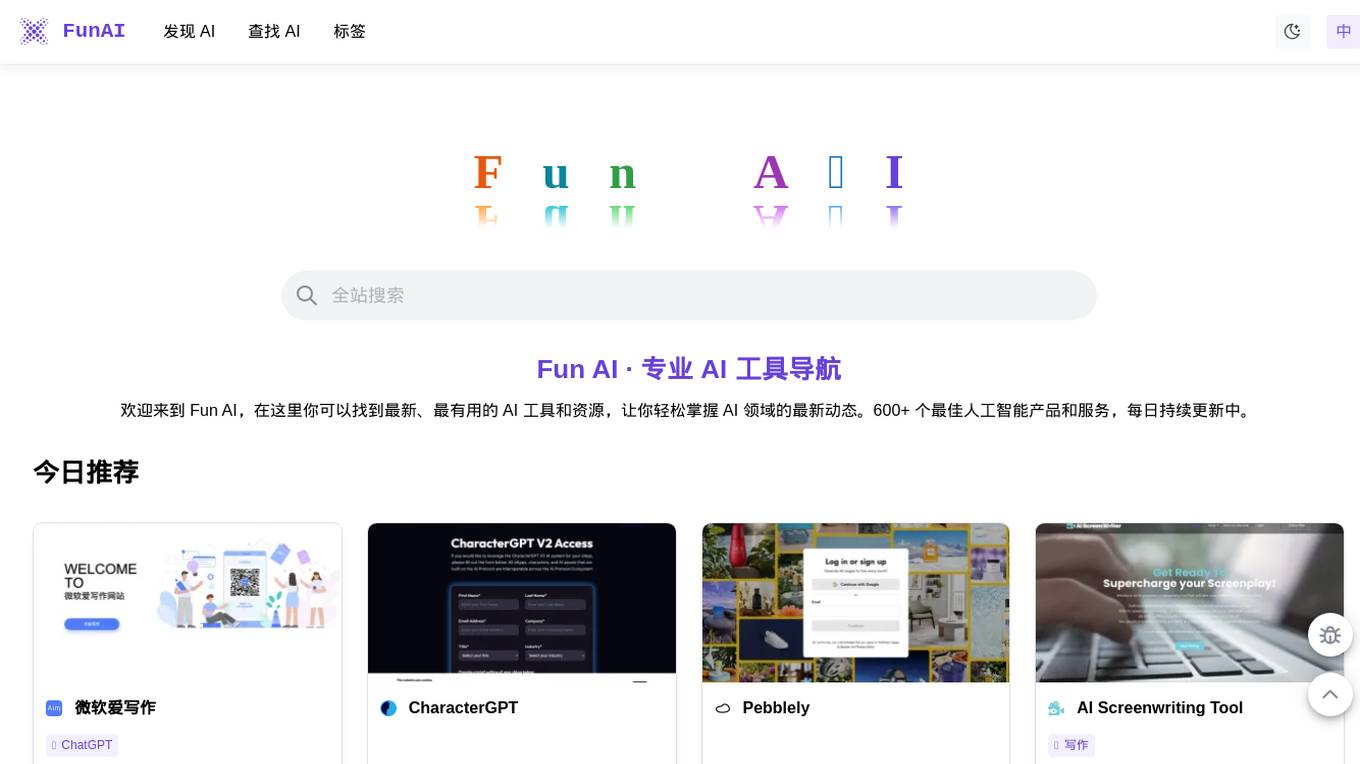
Fun AI
Fun AI is a professional AI tool navigation website where users can find the latest and most useful AI tools and resources to easily grasp the latest trends in the AI field. With over 600 best artificial intelligence products and services continuously updated, Fun AI offers a variety of tools tailored for different purposes, such as AI Screenwriting Tool for scriptwriters, ARC for image restoration, AskCodi for coding assistance, AliGenie for smart home applications, AgentGPT for AI agent creation, MyShell AI for chatting with AI characters, Civitai for AI art community, ClipDrop for image processing, Copy.ai for sales and marketing automation, and more. These tools cater to various needs in different domains, showcasing the versatility and innovation of AI technology.

Finta
Finta is the world's first GPT powered CRM, built explicitly for creating meaningful investor interactions and automatically driving your funnel forward with AI personalized email scripts. It is a tracker CRM with AI automation at its core, designed to help founders and investors connect and close deals. Finta uses AI to prospect the best investors for your company's offering, provides a shareable deal link for investors to commit and send funds, and automates your fundraising workflow end to end.

LazyBird
LazyBird is an AI Voice-Over Generator that provides realistic voices with natural intonations, offering the best AI voice-over experience to captivate your audience. Users can easily create voice-overs by uploading scripts, selecting voices, editing timing, and exporting the final result. With a wide range of characters, accents, and tones to choose from, LazyBird allows users to find the perfect voice for their content. Additionally, users can sync their video and audio files with AI-generated voice-overs, access a rich library of stock videos and images, and enjoy features like granular word-level control, 60+ natural-sounding voices, 100+ languages and accents, advanced audio timeline, and more.
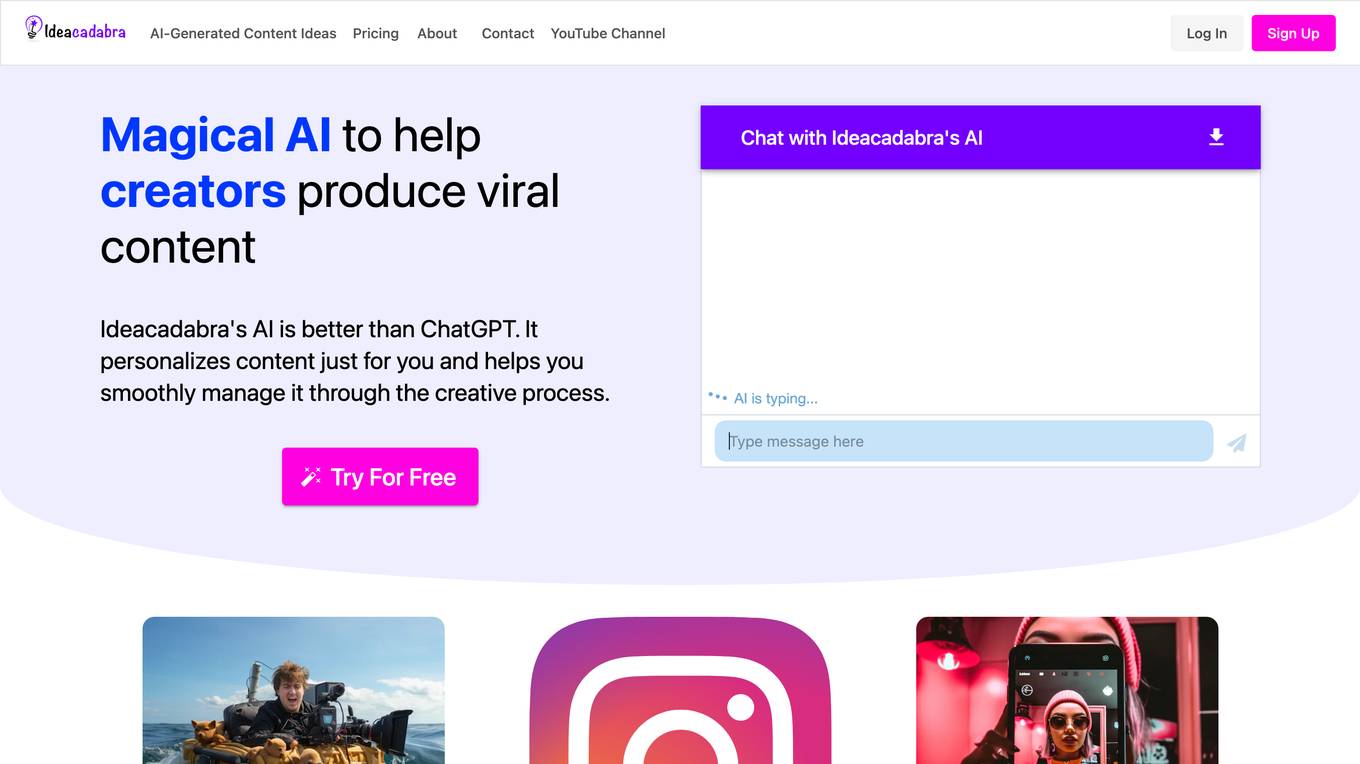
Ideacadabra
Ideacadabra is an AI tool designed for creators on YouTube, Instagram, TikTok, and Twitter. It generates personalized content ideas based on past content and audience preferences, helps manage content seamlessly through the creative process, and identifies trending topics before they peak. The AI tool also assists in creating titles, descriptions, thumbnails, scripts, songs, and hashtags for various platforms. Users can provide feedback to refine ideas until they find the perfect one, making content creation more efficient and effective.
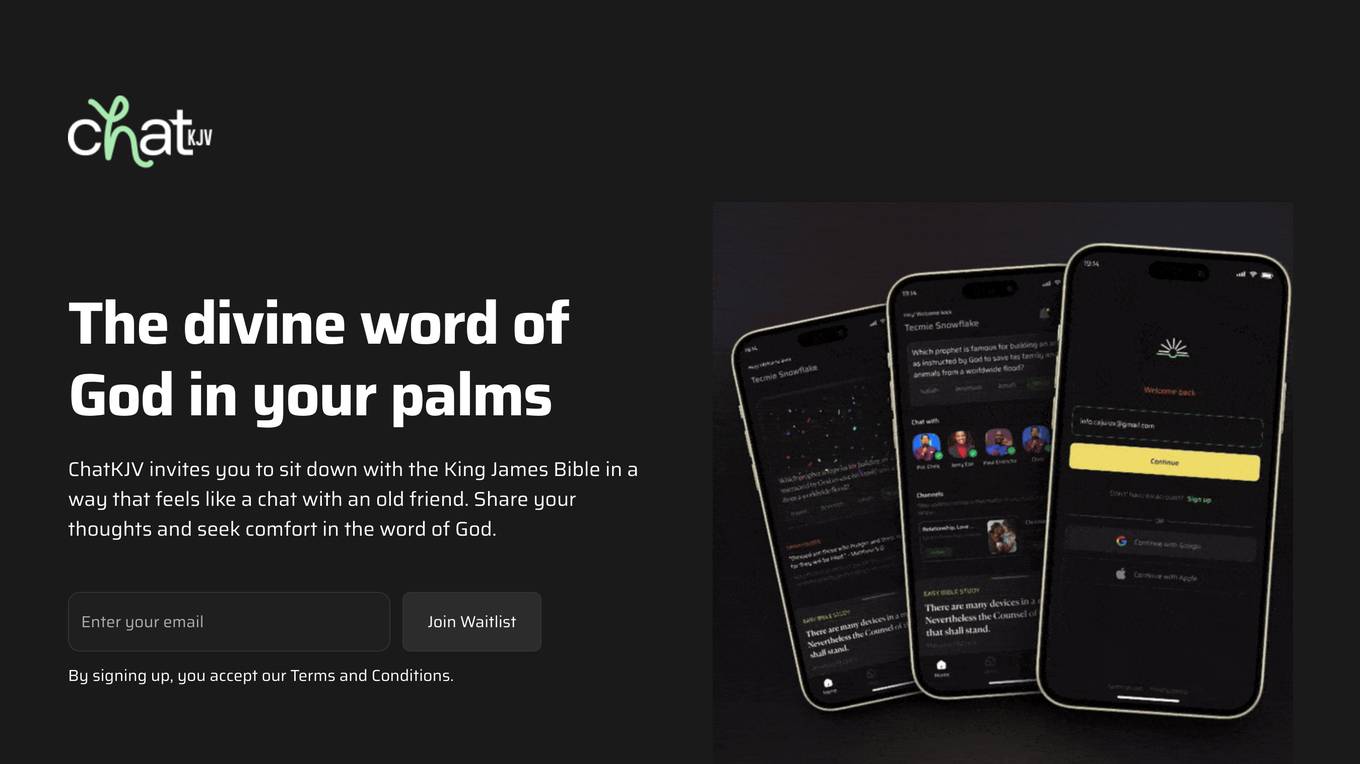
ChatKJV
ChatKJV is a unique platform that allows users to engage with the Scriptures in a conversational manner, providing a personalized experience tailored to individual emotions. Users can chat with the King James Bible as if it were an old friend, seeking comfort and insights from the word of God. The platform aims to offer hope and encouragement through the divine teachings, making it easy for users to access and engage with the Bible in a meaningful way.
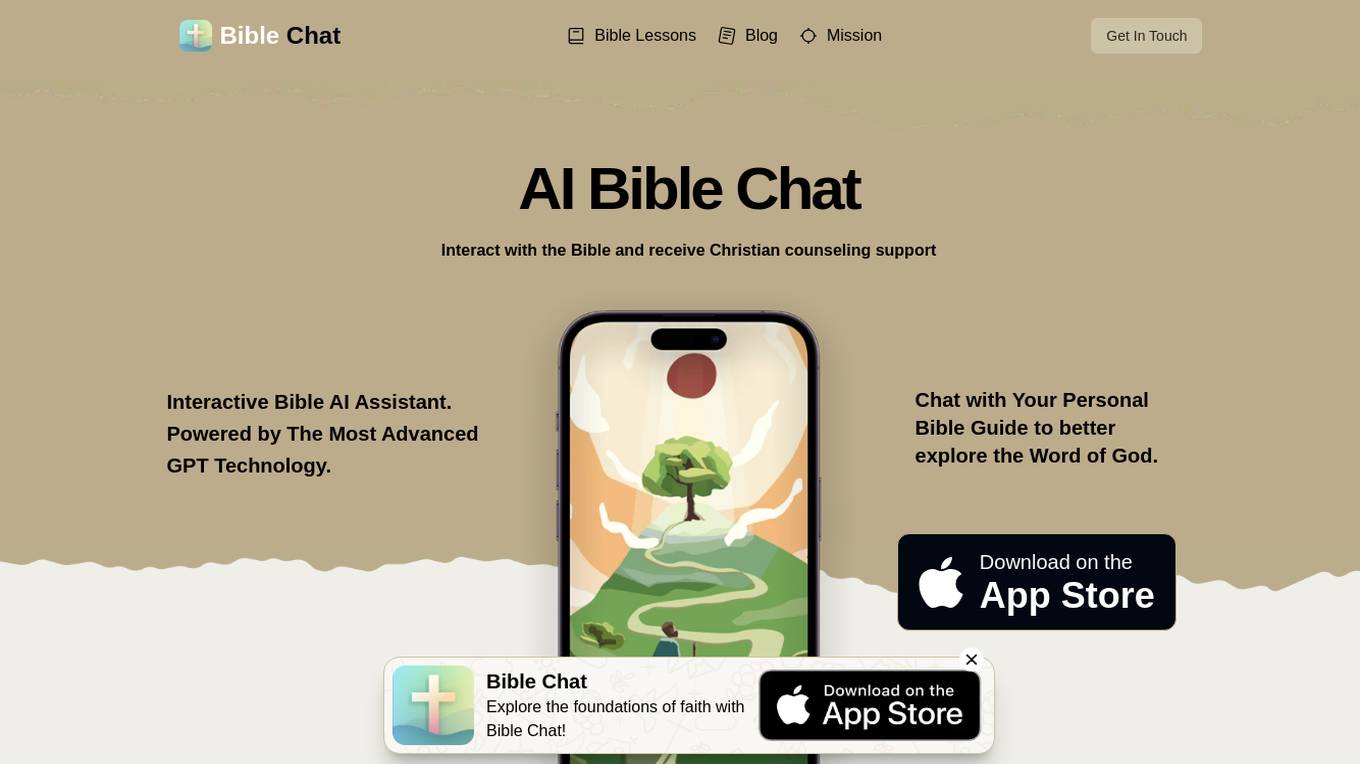
AI Bible Chat
The AI Bible Chat is an interactive platform that allows users to engage with the Bible, receive Christian counseling support, and explore faith-related topics. Powered by advanced GPT technology, the app offers features such as verse finder, Bible trivia, and insights into biblical characters. Users can delve into scriptures, find solace in God's presence, and deepen their understanding of the Bible. With a user-friendly design and engaging features, the AI Bible Chat aims to make biblical learning accessible to everyone, providing a personalized spiritual journey.
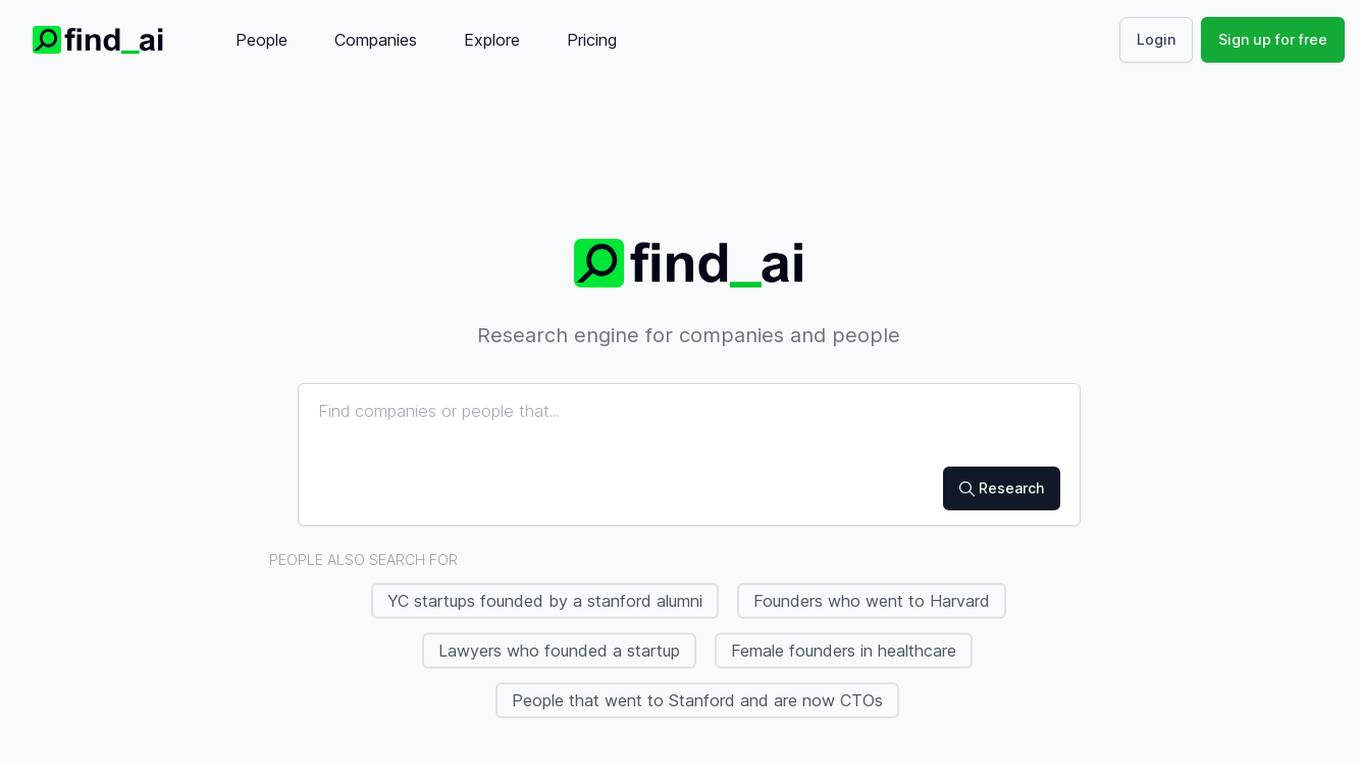
Find AI
Find AI is an AI-powered search engine that provides users with advanced search capabilities to unlock contact details and gain more accurate insights. The platform caters to individuals and companies looking to research people, companies, startups, founders, and more. Users can access email addresses and premium search features to explore a wide range of data related to various industries and sectors. Find AI offers a user-friendly interface and efficient search algorithms to deliver relevant results in a timely manner.
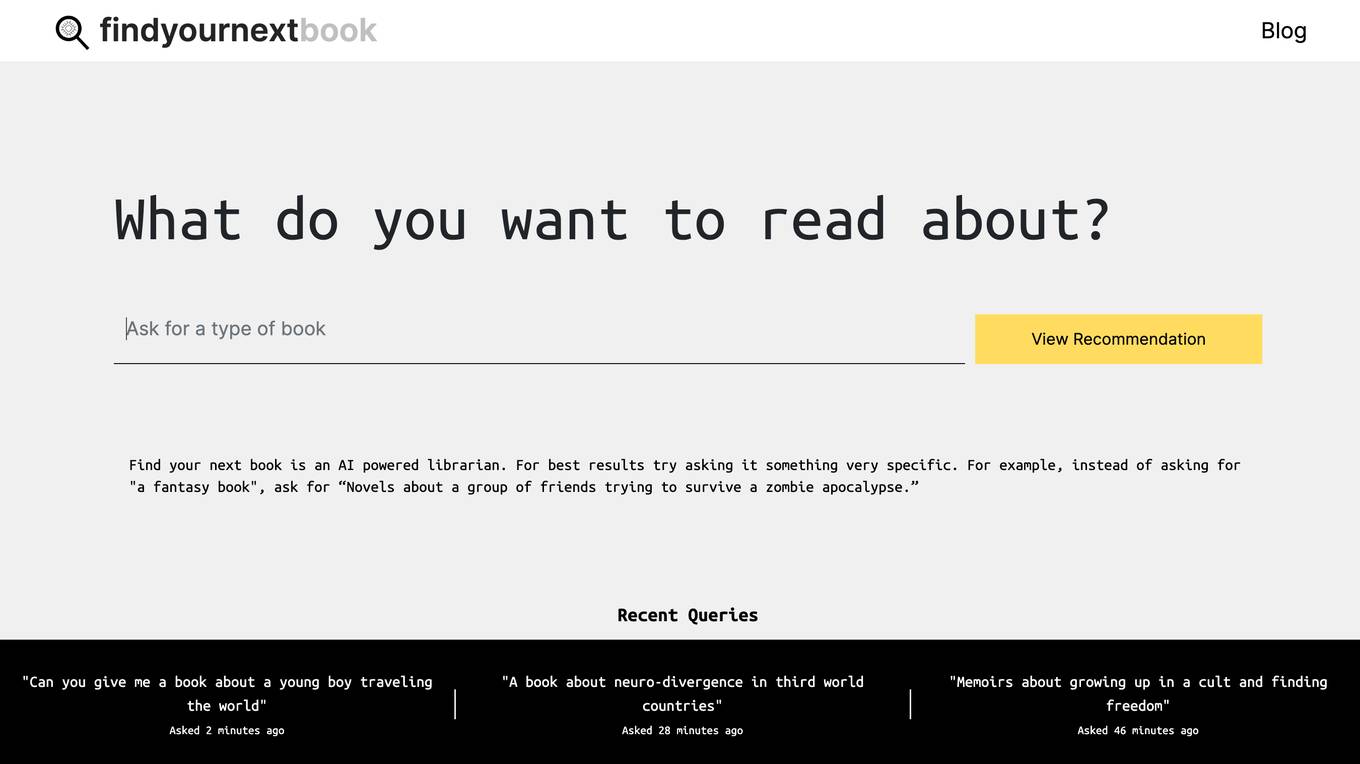
Find your next book
Find your next book is an AI-powered librarian that provides personalized book recommendations based on your preferences. It uses advanced algorithms to analyze your reading history, interests, and other factors to suggest books that you're likely to enjoy. The platform offers a wide range of genres and authors to choose from, making it easy to find your next favorite read.
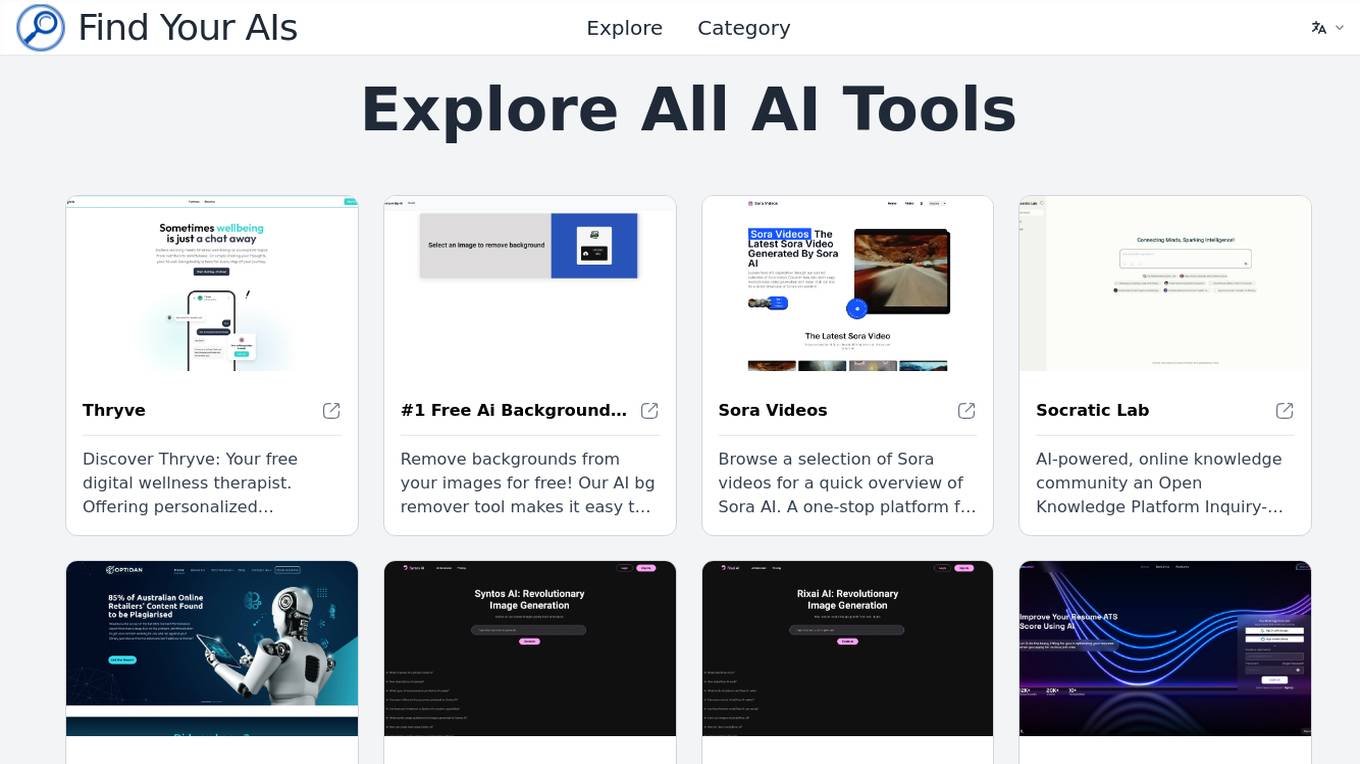
Find Your AIs
Find Your AIs is an AI directory website that showcases a wide range of AI tools and applications. It offers a platform for users to explore and discover various AI-powered solutions across different categories such as digital wellness, marketing, text-to-image generation, resume customization, and more. The website aims to connect users with innovative AI technologies to enhance their daily lives and work efficiency.
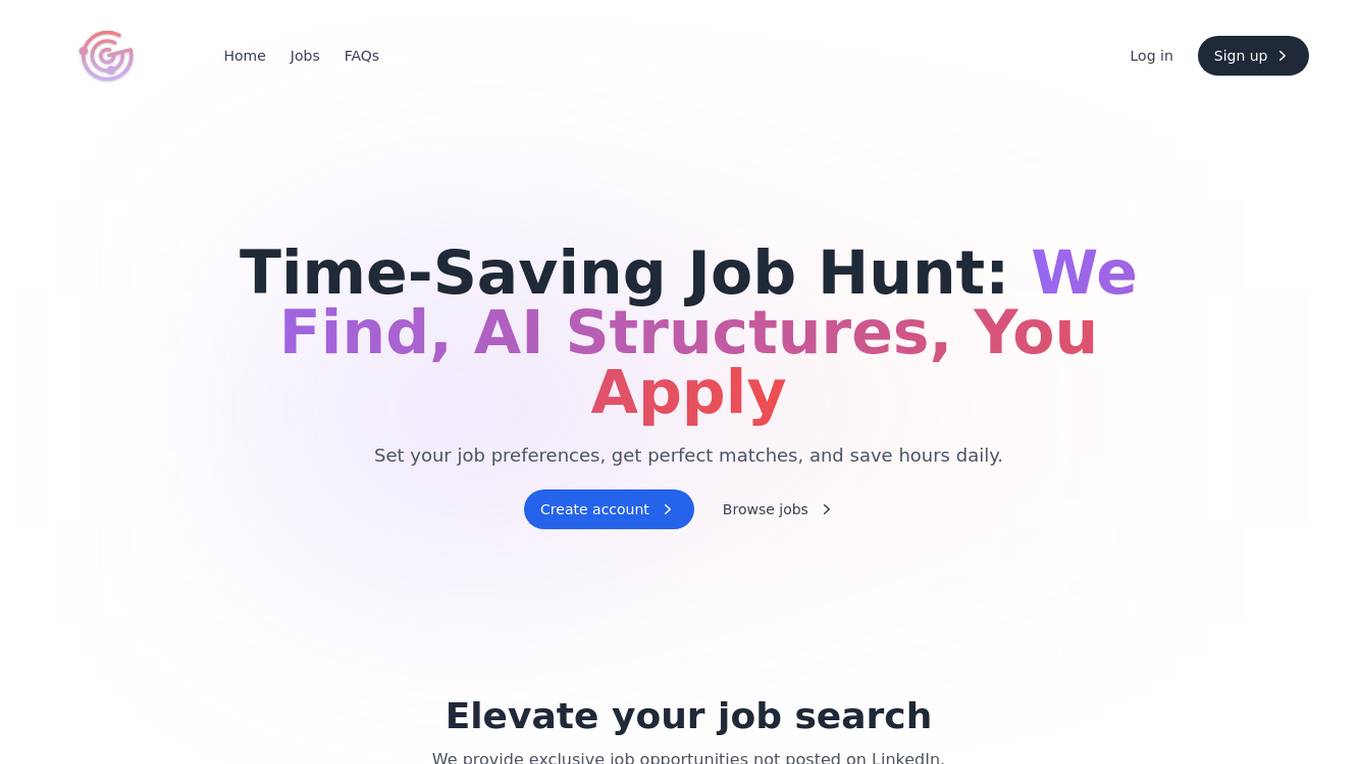
Find My Remote
Find My Remote is an AI-powered job search platform that streamlines the job hunting process by leveraging artificial intelligence to find and structure job postings from various ATS platforms. Users can set their job preferences, receive personalized job matches, and save time by applying to curated job listings. The platform offers exclusive job opportunities not typically found on popular job search websites like LinkedIn. With features such as job discovery, application tracking, and faster application process, Find My Remote aims to revolutionize the way job seekers find and apply for jobs.

Find New AI
Find New AI is a comprehensive platform offering a variety of AI tools and efficiency solutions for different purposes such as SEO, content creation, marketing, link building, image manipulation, and more. The website provides reviews, tutorials, and guides on utilizing AI software effectively to enhance productivity and creativity in various domains.

Find My Size
Find My Size is a web application that provides personalized size recommendations for exclusive deals at hundreds of top retailers. Users can input their measurements and preferences to receive tailored suggestions for clothing items that will fit them perfectly. The platform aims to enhance the online shopping experience by helping customers find the right size and style without the need for multiple returns. Find My Size collaborates with various retailers to offer a wide range of products across different categories, including active & sportswear, young contemporary, business & workwear, lingerie & sleepwear, outerwear, maternity wear, plus size apparel, and swimwear.
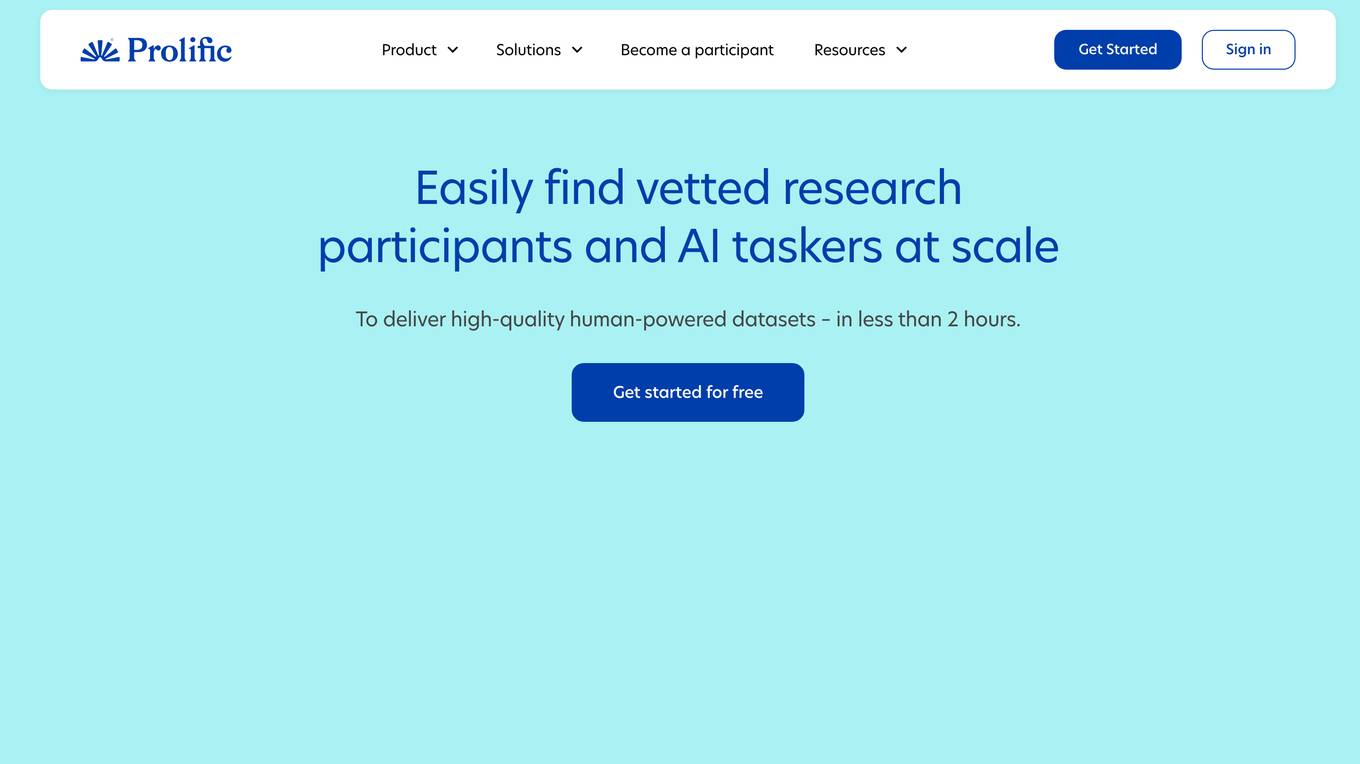
Prolific
Prolific is a platform that allows users to quickly find research participants they can trust. It offers a diverse participant pool, including domain experts and API integration. Prolific ensures high-quality human-powered datasets in less than 2 hours, trusted by over 3000 organizations. The platform is designed for ease of use, with self-serve options and scalability. It provides rich, accurate, and comprehensive responses from engaged participants, verified through manual and algorithmic quality checks.
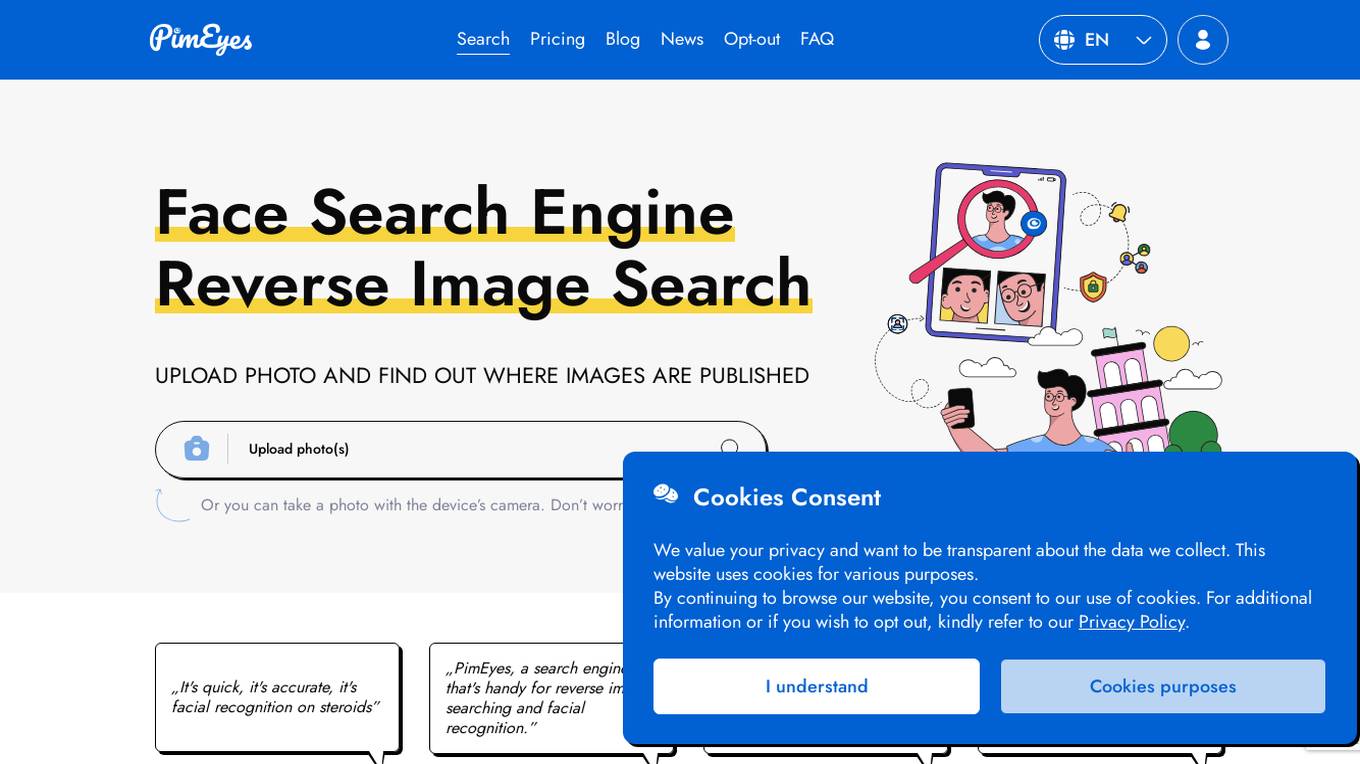
PimEyes
PimEyes is an online face search engine that uses face recognition technology to find pictures containing given faces. It is a great tool to audit copyright infringement, protect your privacy, and find people.
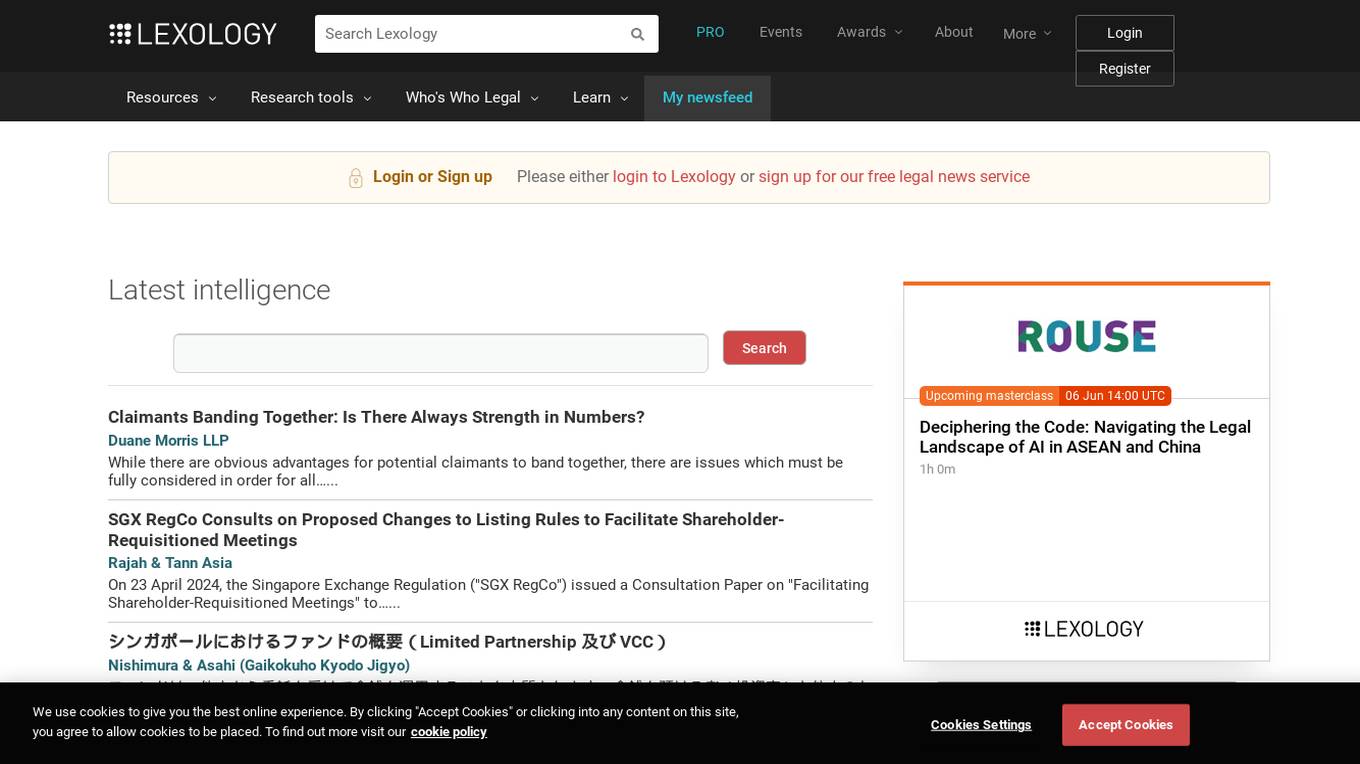
Lexology
Lexology is a next-generation search tool designed to help users find the right lawyer for their needs. It offers a wide range of resources, including practical analysis, in-depth research tools, primary sources, and expert reports. The platform aims to be a go-to resource for legal professionals and individuals seeking legal expertise.
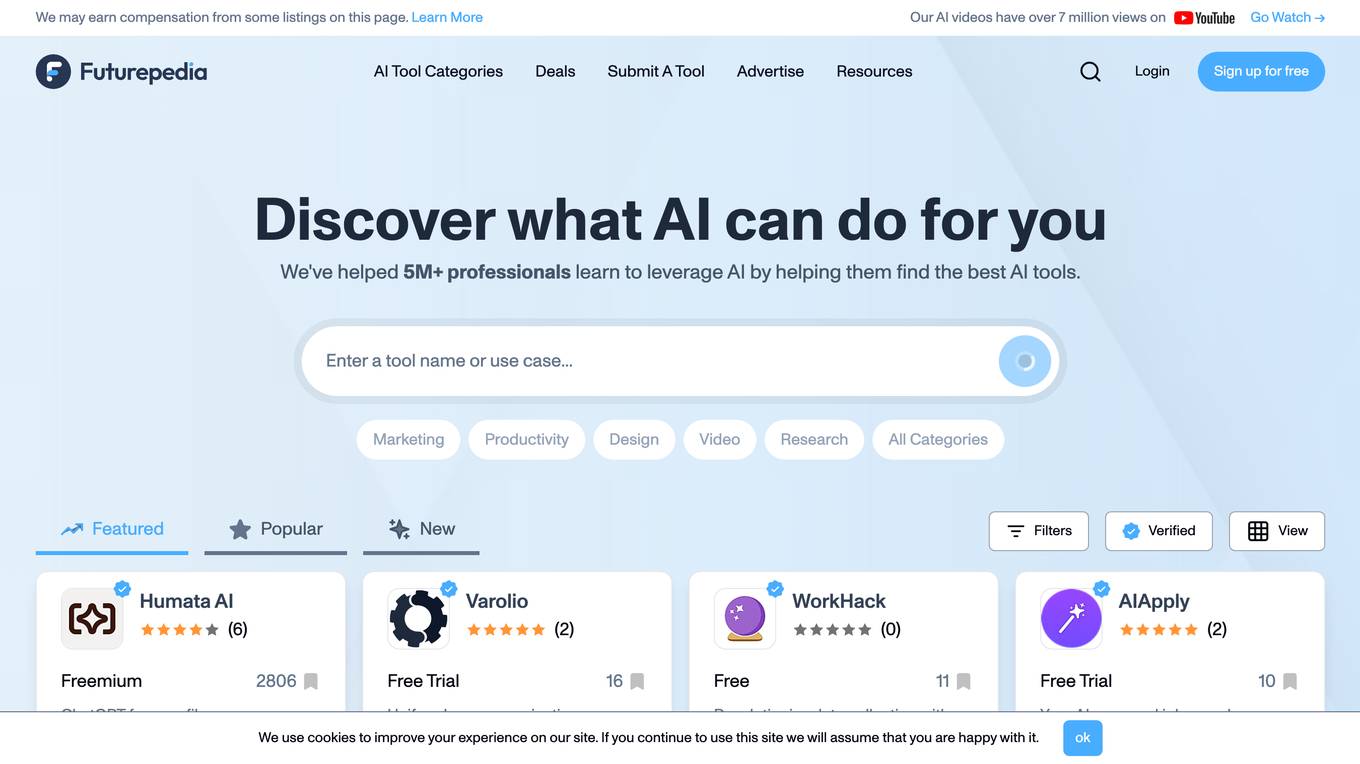
Futurepedia
Futurepedia is a leading AI resource platform dedicated to empowering professionals across various industries to leverage AI technologies for innovation and growth. Our platform offers comprehensive directories, easy-to-follow guides, a weekly newsletter, and an informative YouTube channel, simplifying AI integration into professional practices. Committed to making AI understandable and practical, we provide resources tailored to diverse professional needs, fostering a community where more than 200,000 professionals share knowledge and experiences.

GrabJobs
GrabJobs is an AI-powered job search platform that helps job seekers find the best jobs and grow their careers. With millions of job opportunities from industry-leading companies, GrabJobs makes it easy to find the perfect job for your skills and experience. Our AI-driven job recommendations and chat-based job applications make the job search process faster and more efficient. Plus, our time-saving automated applications ensure that you can apply to more jobs in less time.
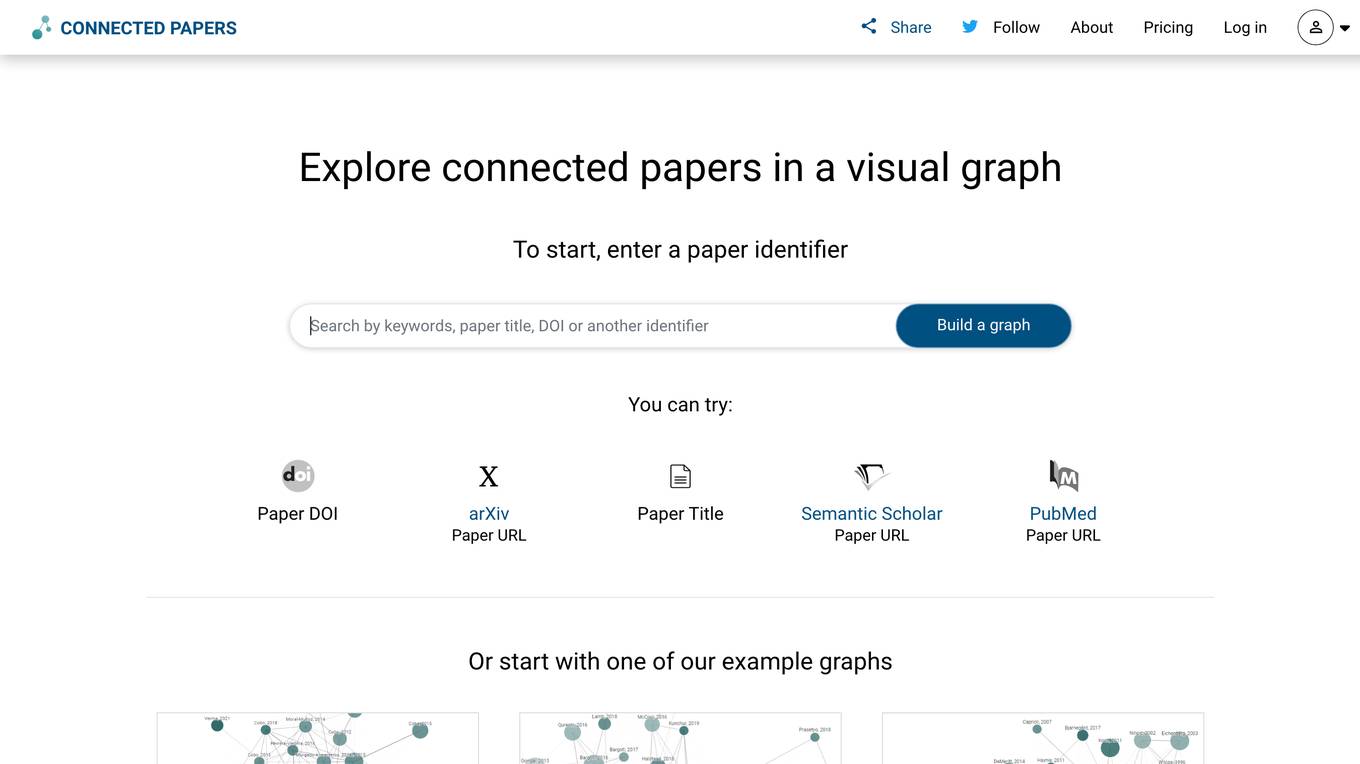
Connected Papers
Connected Papers is a search engine for academic papers that uses artificial intelligence to help users find and explore relevant research. It allows users to search for papers by keyword, author, or title, and then explore the connections between them. Connected Papers also provides a variety of tools to help users organize and manage their research, including the ability to create custom collections of papers, add notes and annotations, and share their research with others.
0 - Open Source AI Tools
20 - OpenAI Gpts
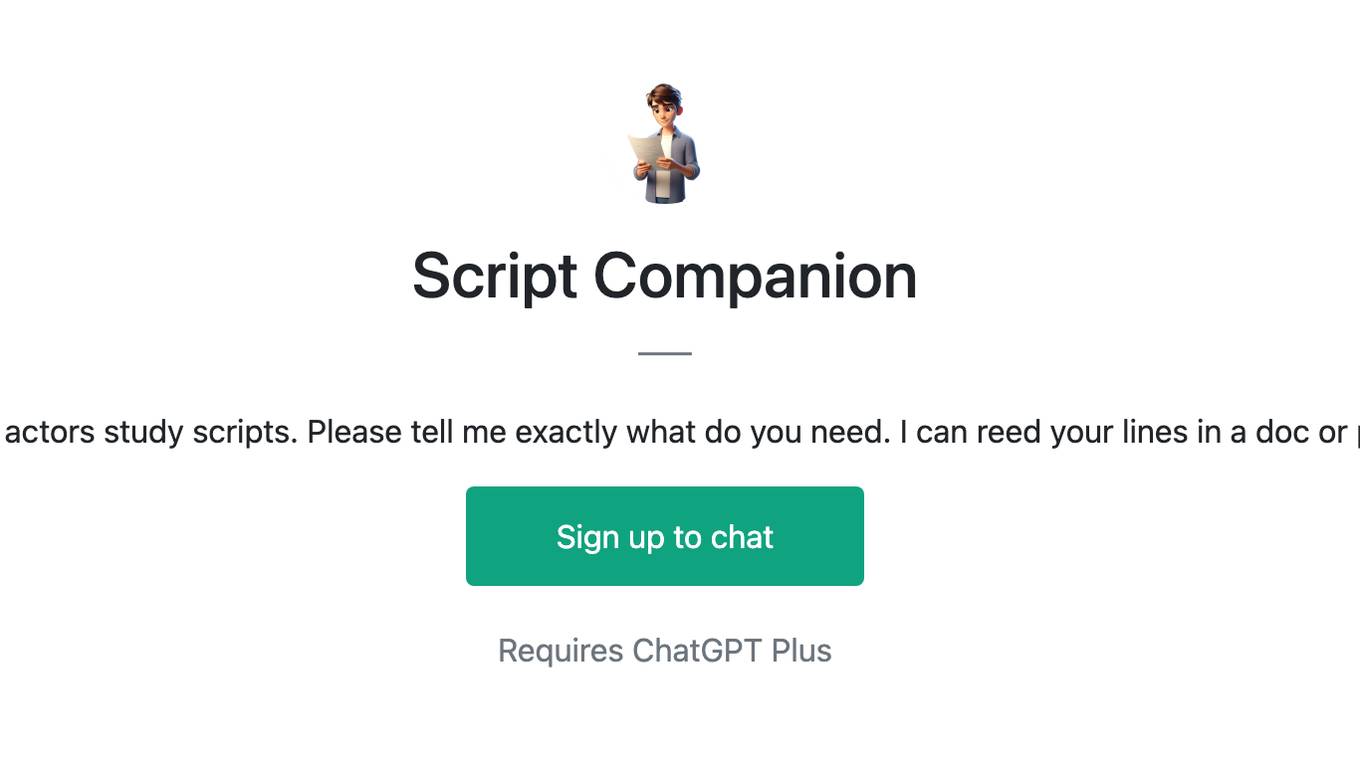
Script Companion
I help actors study scripts. Please tell me exactly what do you need. I can reed your lines in a doc or pdf.
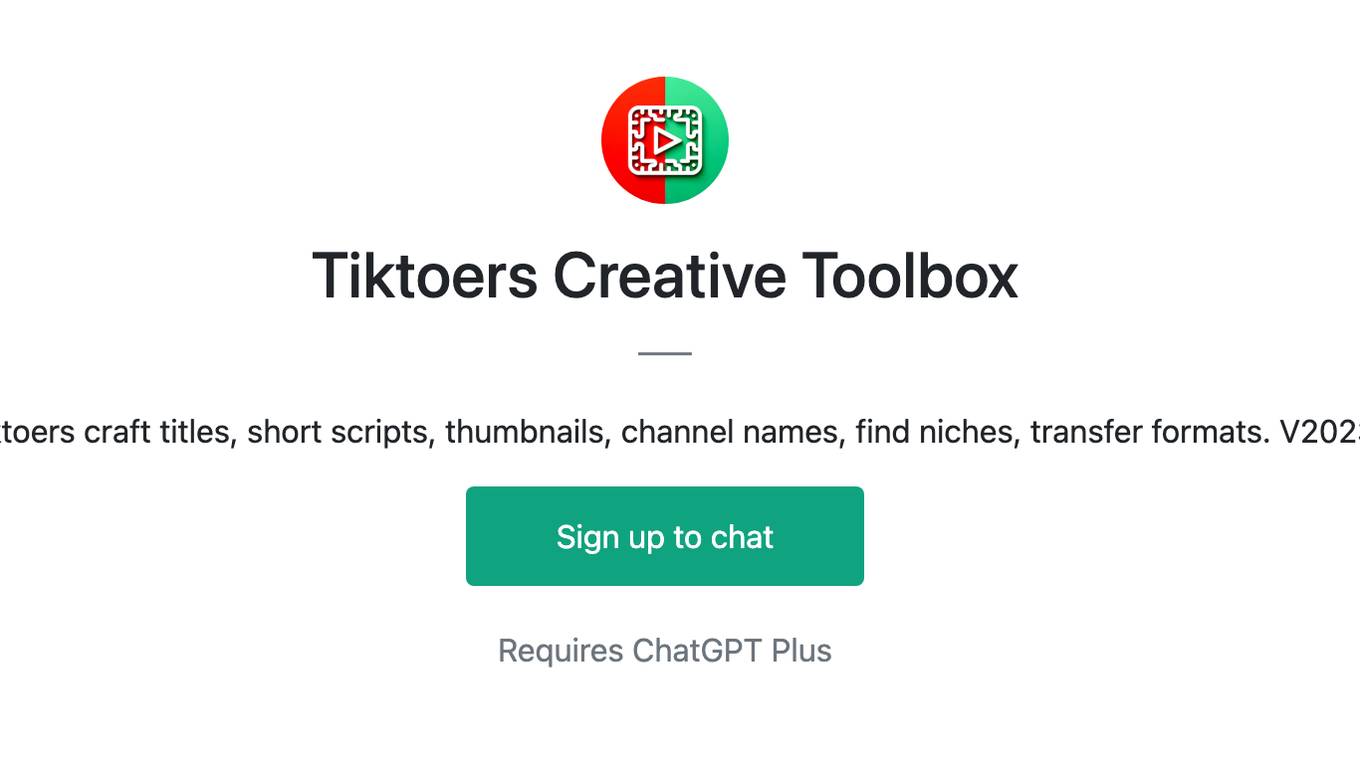
Tiktoers Creative Toolbox
Help tiktoers craft titles, short scripts, thumbnails, channel names, find niches, transfer formats. V20231118
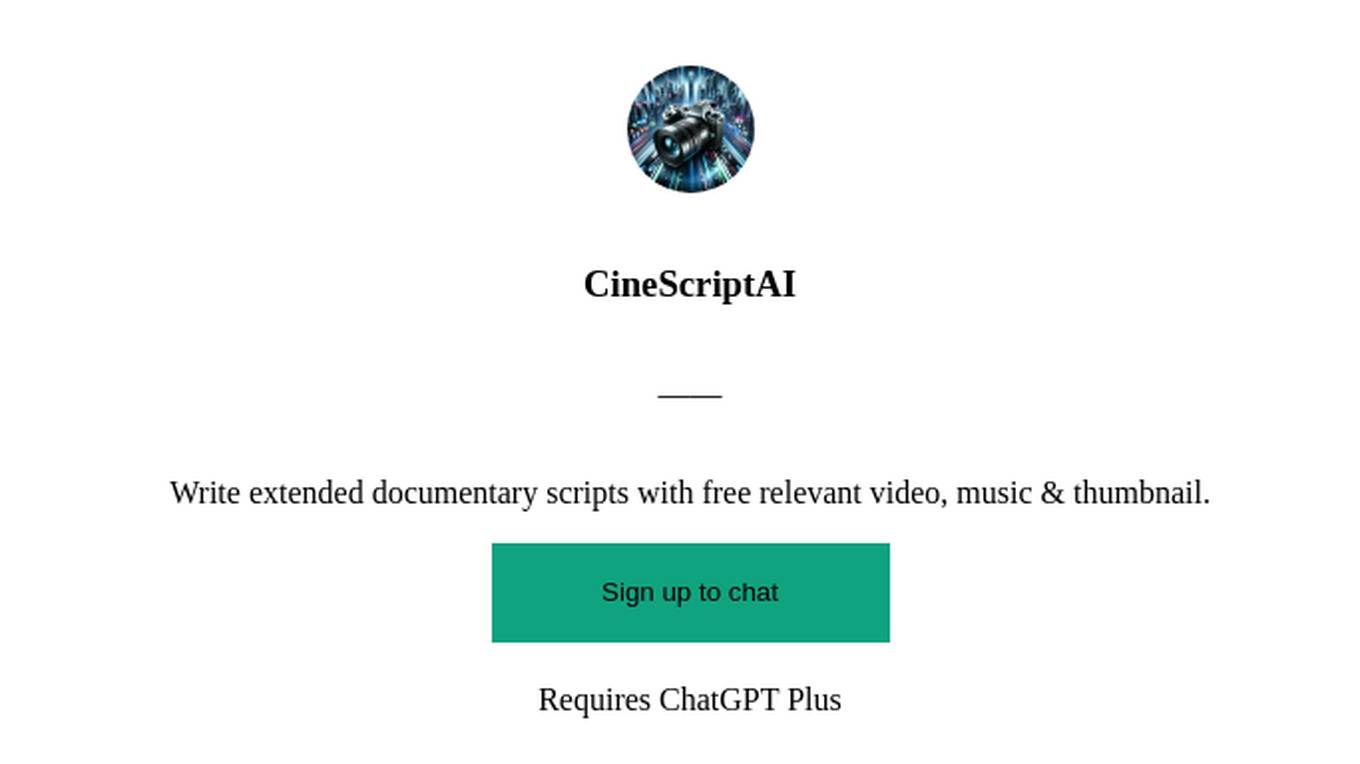
CineScriptAI
Write extended documentary scripts with free relevant video, music & thumbnail.
3D Modeler and Scripter Assistant
Specialist in 3D modeling, scripting, and fractal design.

IDA Pro Plugins recommendation expert.
Ask me to recommend a plugin or script from the official Hex-Rays plugin repository
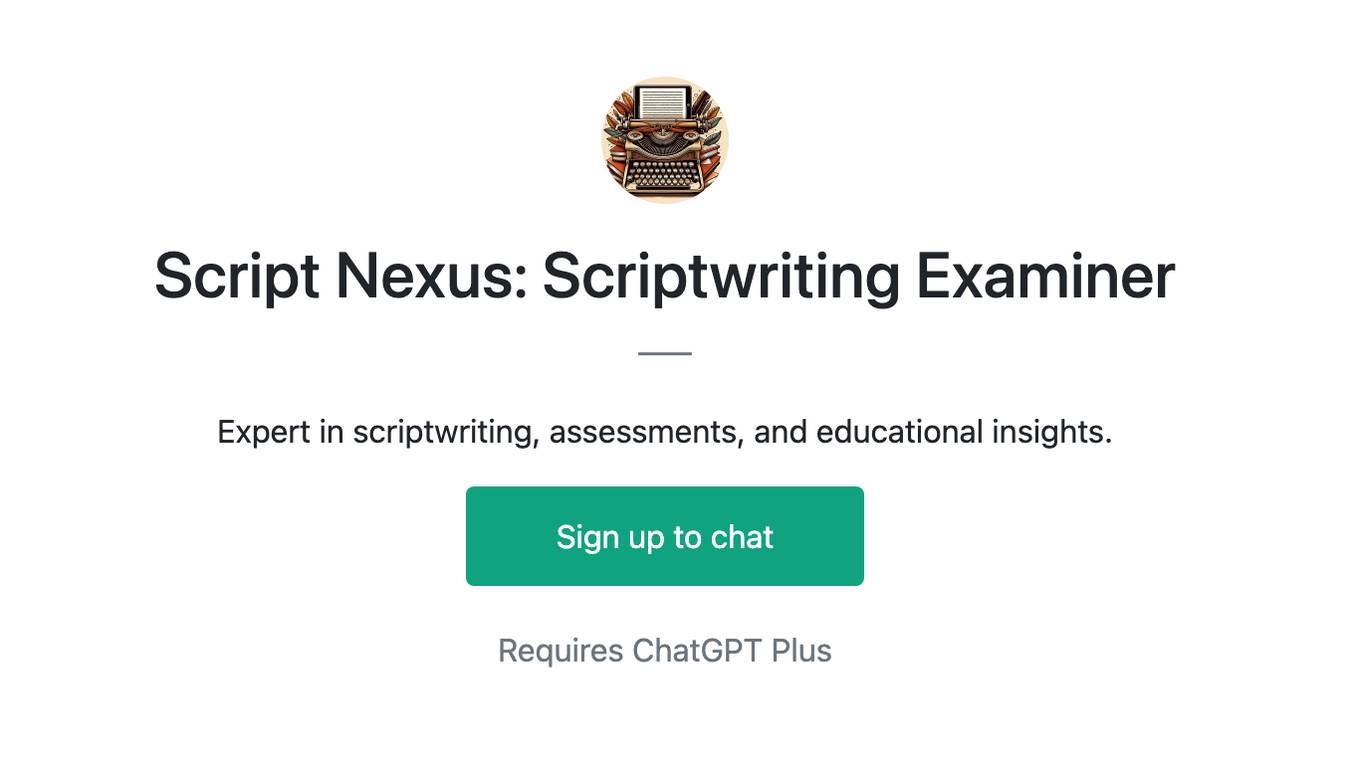
Script Nexus: Scriptwriting Examiner
Expert in scriptwriting, assessments, and educational insights.

Messages from the Book of Mormon
Provides referenced Book of Mormon verses with links, and apostolic quotes.

Daily Scripture Inspiration
Daily Bible messages with complementary images on encouragement, guidance, and gratitude. #dailyscriptures #inspiration by Edward Shanahan
